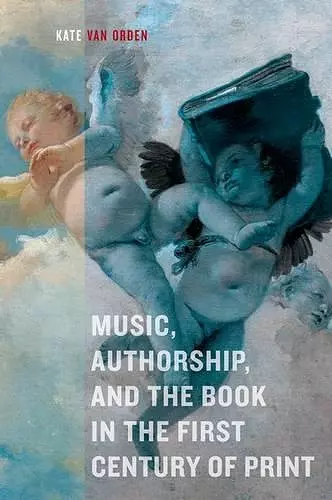Music, Authorship, and the Book in the First Century of Print
Format:Hardback
Publisher:University of California Press
Published:3rd Dec '13
Should be back in stock very soon

What does it mean to author a piece of music? What transforms the performance scripts written down by musicians into authored books? In this fascinating cultural history of Western music's adaptation to print, Kate van Orden looks at how musical authorship first developed through the medium of printing. When music printing began in the sixteenth century, publication did not always involve the composer: printers used the names of famous composers to market books that might include little or none of their music. Publishing sacred music could be career-building for a composer, while some types of popular song proved too light to support a reputation in print, no matter how quickly they sold. Van Orden addresses the complexities that arose for music and musicians in the burgeoning cultures of print, concluding that authoring books of polyphony gained only uneven cultural traction across a century in which composers were still first and foremost performers.
"[Van Orden] writes with such verve and enthusiasm that her book can convey the import of her work to the general reader." -- Stephen Smoliar Examiner.com "A well-written study ... useful reading for anyone interested in the history of publishing and the economics of music as livelihood and as a commodity." Critical Margins
ISBN: 9780520276505
Dimensions: 229mm x 152mm x 25mm
Weight: 499g
256 pages